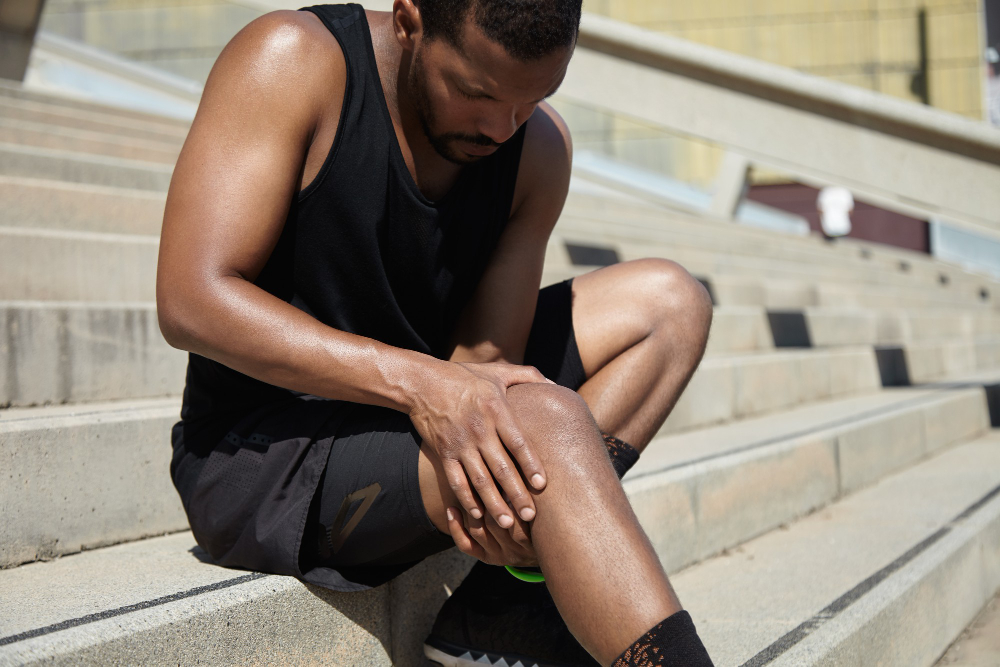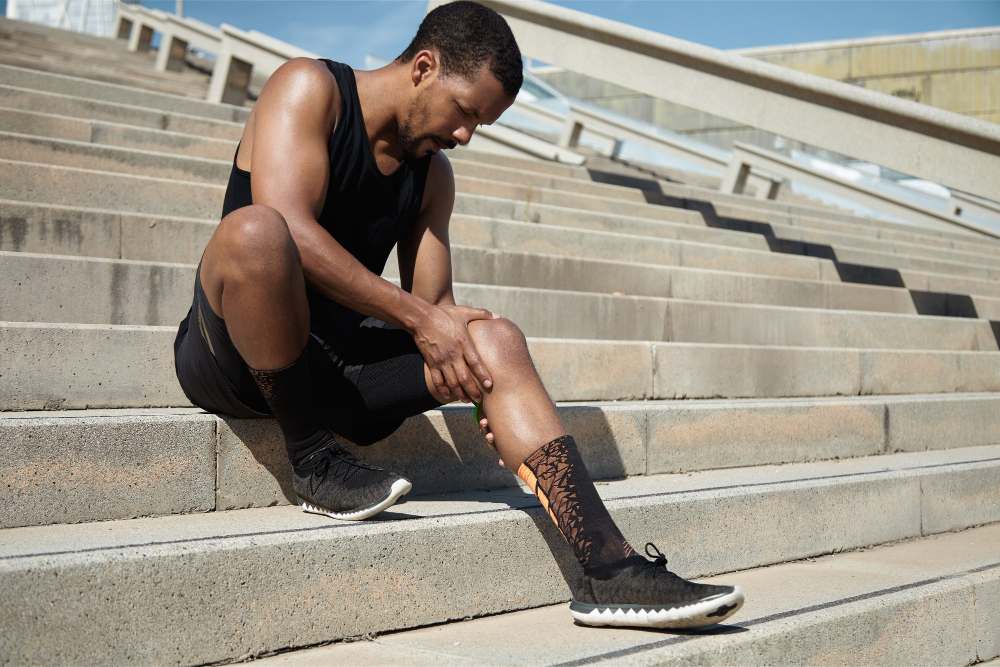Are you wondering why your Achilles tendons feel so tight? You’re not alone. Many people experience this discomfort and are searching for answers. In this article, we will explore the reasons behind tight Achilles tendons and provide effective remedies to alleviate the discomfort.
Tight Achilles tendons can be caused by a variety of factors. One common cause is overuse or repetitive strain on the tendon, such as from running or jumping activities. This can lead to inflammation and tightness in the tendon. Another possible cause is a lack of flexibility or tightness in the calf muscles, which can put added stress on the Achilles tendon.
To relieve the tightness in your Achilles tendons, there are several remedies you can try. Stretching exercises can be beneficial in improving flexibility and reducing tightness. Calf stretches, heel drops and eccentric exercises are often recommended to target the Achilles tendon specifically. Additionally, using ice packs, applying heat, and using over-the-counter pain relievers may help reduce inflammation and provide temporary relief.

By understanding the causes of tight Achilles tendons and implementing these remedies, you can find relief from discomfort and improve your overall flexibility. Don’t let tight Achilles tendons hold you back – take action today and discover the reasons behind your discomfort.
Why Is Your Achilles Tendon Tight?
Your Achilles tendon may become tight due to various factors. One of the common reasons is overuse, especially in activities that involve repetitive movements like running or jumping. Another cause could be inadequate stretching before exercise or physical activity. Additionally, tight calf muscles can contribute to a tight Achilles tendon.
How To Fix Tight Achilles Tendons
Tight Achilles tendons can be a source of discomfort and pain, but there are ways to alleviate the tightness and restore flexibility. Here are some effective remedies for tight Achilles tendons:
1. Stretching exercises:
Regularly performing stretching exercises that target the calf muscles can help loosen the Achilles tendon. Examples include calf stretches, heel drops, and towel stretches.
2. Massage therapy:
Massaging the calf muscles and the area around the Achilles tendon can help relieve tension and improve blood circulation. Consider using a foam roller or seeking professional massage therapy.
3. Rest and ice:
Taking breaks from activities that put a strain on the Achilles tendon and applying ice packs can help reduce inflammation and promote healing.
4. Footwear modification:
Wearing supportive shoes with proper arch support and cushioning can help prevent further strain on the Achilles tendon.
Remember, it’s important to consult with a healthcare professional for an accurate diagnosis and personalized treatment plan for your tight Achilles tendon.
Common Reasons Why Achilles Become Tight
There are several factors that can contribute to the tightening of the Achilles tendon. One common reason is overuse, which can occur when you engage in activities that put excessive strain on the tendon, such as running or jumping. Another factor is improper footwear, as shoes that do not provide adequate support or have a heel that is too high can cause the Achilles tendon to become tight. Additionally, tight calf muscles can also lead to a tight Achilles tendon, as the calf muscles are connected to the tendon. It is important to address these factors in order to prevent or alleviate tightness in the Achilles tendon.
What Should I Do About Tight Achilles?
Seek Professional Help
If you are experiencing tightness in your Achilles tendon, it is important to consult with a healthcare professional. They can accurately diagnose the cause of your tightness and provide the appropriate treatment plan.
Stretch and Strengthen
One effective way to alleviate tightness in the Achilles tendon is through regular stretching and strengthening exercises. Incorporating exercises such as calf raises and heel drops into your routine can help improve flexibility and reduce tension in the tendon.
Taking care of your Achilles tendon is crucial to maintaining overall foot health. By seeking professional help and implementing a consistent stretching and strengthening routine, you can effectively address tightness in your Achilles tendon and prevent further discomfort or injury. Remember to listen to your body and take it slow, as rushing the process can lead to additional strain or damage.
5. Discover Effective Remedies for Tight Achilles
A tight Achilles tendon can cause discomfort and limit your mobility. Fortunately, there are several effective remedies that can help alleviate the tightness and restore flexibility to your tendon.
Stretching exercises
Regularly performing stretching exercises can help loosen the tight Achilles tendon. Simple exercises like calf stretches, heel drops, and toe stretches can be effective in relieving tightness.
Massage therapy
Massaging the calf muscles and the Achilles tendon can help improve blood flow and reduce tension. Using your hands or a foam roller, gently massage the area to promote relaxation and flexibility.
Applying heat or cold
Applying heat or cold therapy to the affected area can provide relief from tightness. Heat can help relax the muscles, while cold therapy can reduce inflammation and numb the area.
Wearing proper footwear
Wearing shoes with proper arch support and cushioning can help prevent and alleviate tightness in the Achilles tendon. Avoid high heels and opt for shoes that provide adequate support and stability.
Rest and elevation
Taking breaks from activities that strain the Achilles tendon and elevating your leg can help reduce tightness and promote healing. Resting allows the tendon to recover and prevents further strain.
Understanding the Causes of Tight Achilles
A tight Achilles tendon can be caused by a variety of factors. One common cause is overuse or repetitive strain on the tendon, such as excessive running or jumping. This can lead to inflammation and tightening of the tendon. Another cause can be a lack of flexibility or stretching in the calf muscles, which puts added strain on the Achilles. Additionally, certain medical conditions such as Achilles tendinitis or plantar fasciitis can contribute to a tight Achilles.
Understanding the causes of a tight Achilles is important in order to effectively address the issue. By identifying the underlying cause, individuals can take appropriate steps to alleviate discomfort and prevent further tightening of the tendon. This may include implementing a stretching and strengthening routine, wearing proper footwear, and taking rest days to allow the tendon to recover. Seeking professional guidance from a physical therapist or sports medicine specialist can also be beneficial in developing a personalized treatment plan.
How To Alleviate Discomfort from Tight Achilles
It can be quite frustrating and painful to deal with discomfort from tight Achilles tendons. However, there are several effective remedies that can help alleviate the pain and improve flexibility. One option is to perform regular stretching exercises specifically targeting the calf muscles and Achilles tendon. This can help to loosen and lengthen the tendon, reducing tightness and discomfort. Additionally, using a foam roller or massage ball to apply pressure to the affected area can help to release tension and promote healing. It is also important to avoid activities that put excessive strain on the Achilles tendon, such as running or jumping, until the tightness subsides. Finally, wearing supportive footwear with proper arch support can help to prevent further strain on the Achilles tendon and provide relief from discomfort. By following these remedies, individuals can find relief from tight Achilles tendons and improve their overall mobility and comfort.










